Text by Camilla Pizzini
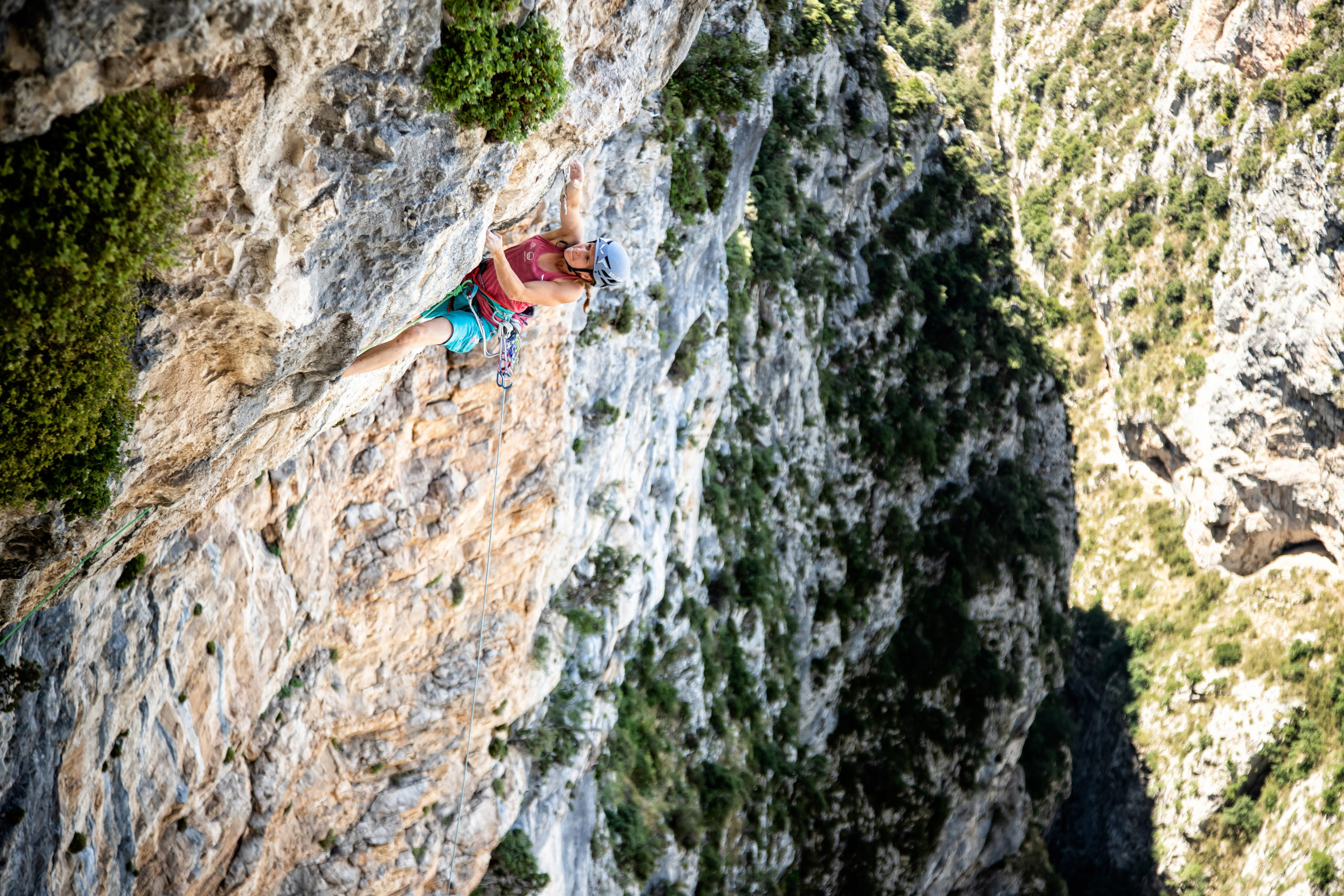
Evolution with Anna Stöhr
A wonderful story of not only climbing, but also of evolution from a career as a professional boulderer to an athlete dedicated to a multi-peach project like Ali Baba’s, 8 pitches, 250 meters, grade 8a+, France.
We had the pleasure to meet you for the premiere of Evolution Movie and ask you some questions.
Part of the short film talks about how the first block that the climber had was the fear of facing the height of this wall and how she couldn’t really detach herself from this thought. Fear being one of the key points of this short film, the first questions she was asked were about how she was finding herself in this moment of general blockade caused by Covid-19 and how she was facing the concerns that clearly involve everyone.
“Fear is definitely something that involves everyone, who more or less, and you can’t decide in what situation to be afraid. For me, during Ali Baba’s climb, it was the way I found myself on that wall and it was right to tell about it because it was an essential and authentic part of this story. I know that there are many people who do not feel fear, for me it was also very special to overcome this fear and work on it. Even now the situation in which we live now is similar, some people are frightened and others are less frightened, what is important is to work to move forward and to overcome it”.
How’s your personal life? How do you put your work and your personal life together?
“Climbing is my profession again now, but I still went to university and worked as a teacher. Climbing is my passion and an important part of my life and it always will be, but I don’t know for how much longer as a profession.”
Do you think that one day in your work as a teacher you will also try to convey to your pupils what you have learned from this “evolution” and how you have faced your fears?
“I certainly hope one day I will teach young students how to deal with fear, but not only that. Sport is an important tool to grow and also to be in nature, which is a fundamental resource to find peace and happiness. In this current situation I feel really happy when I can go out and enjoy the forest. And it is also important to convey the concept that having goals in life will help you to overcome difficult moments. For example, for me, climbing has been a way to deal with various problems and to move forward and achieve my goals.
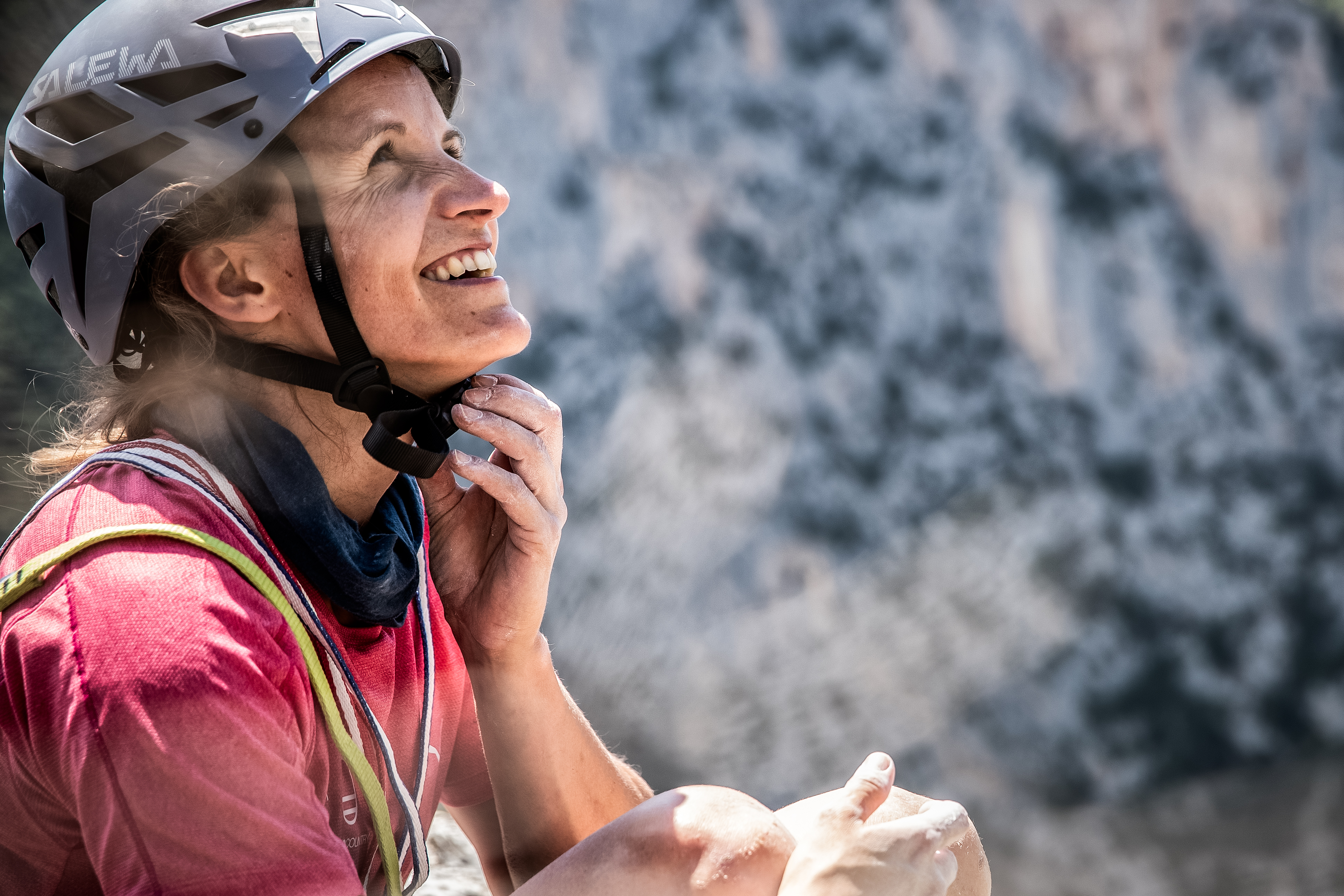
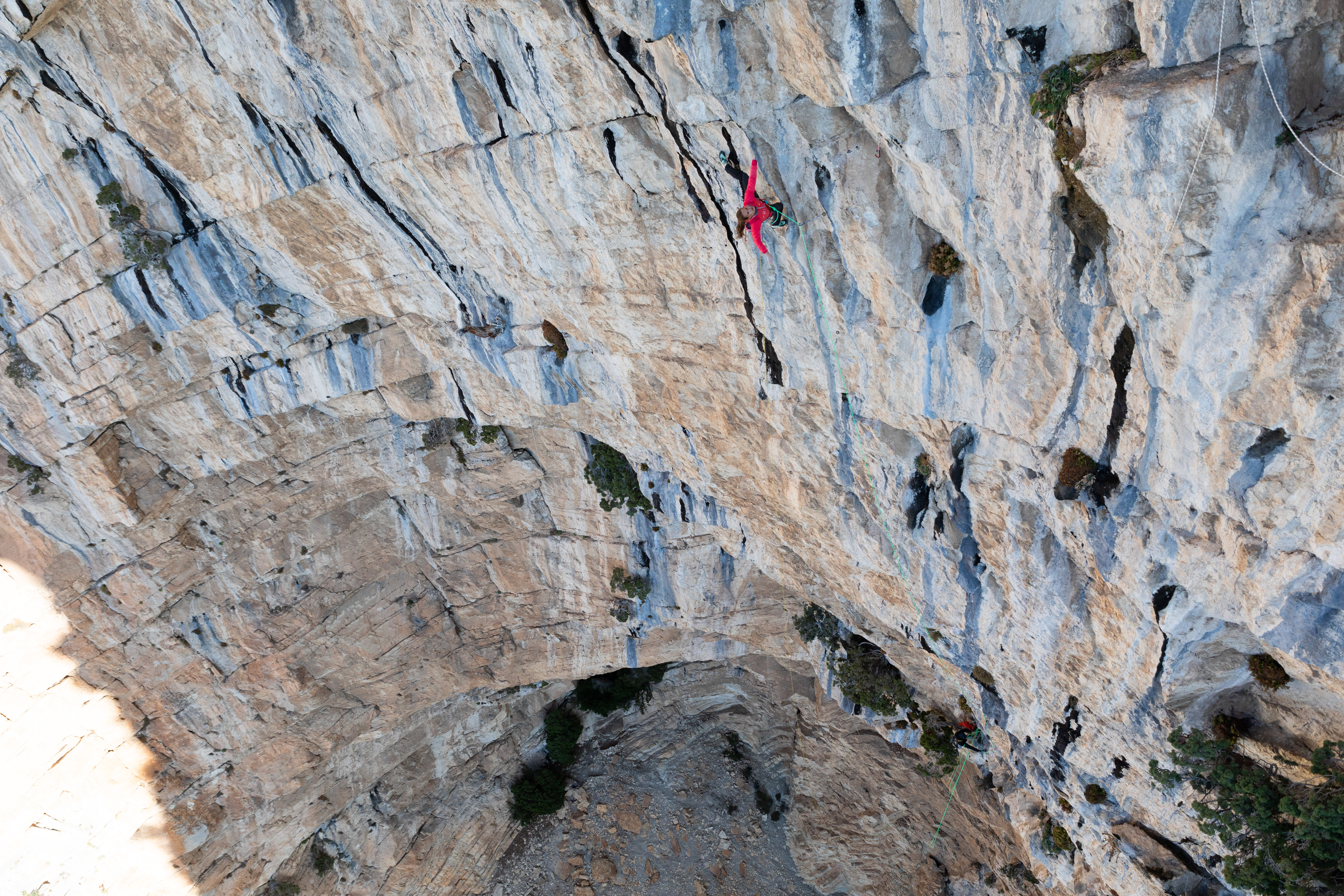
Do you prefer climbing more indoor or outdoor? And what is your favourite effect of these two disciplines?
“I certainly love to go outside with my friends and enjoy a day like this. Training indoors is also important to prepare projects and then feel ready. Of course, if I had to choose I would prefer the outdoors, but luckily I don’t have to. The effect of climbing outdoors is pure motivation and joy, while indoor is special because there are always a lot of friends to do it with, you always meet people who even if you don’t tell them you’re going to climb, they’re there and it’s nice to climb with a big group sometimes.”
How crucial was Kilian Fischhuber’s presence?
“It was fundamental and important to have him with me, he is my fiancé and a supporter, he managed to make me understand that the important thing is not whether something works or not, but that it is fundamental to enjoy that wall together. It was probably the key to success.”
How do you manage your anger during the climb and after so many mistakes continue and reach the end?
“For me it’s important to reach a balance, especially when it comes to climbing. For me it was decisive to do other activities in those days, enjoying the landscape and the canyons, cycling. This was fundamental because I got more motivation especially once I was on the wall”.
Going back before the project, how big is the difference between what you had planned before and what you actually achieved in the end?
“Going back to the beginning I remember thinking looking at the guide “Ah it shouldn’t be a big deal” but then when I was on the wall the feelings had changed and I was afraid and it was harder than I thought to face it all. It became more and more important, day after day, to be able to face this challenge without thinking about anything. At first it was a small goal, but in the end it became a dream.”

Do you feel more inspired by women or men in climbing?
“Definitely by women, because the climbing world is largely dominated by men and I think it’s really nice to see the results of other women. When I was climbing and I saw that some women, or at least one of my height and consequently with my own width of arms, had managed to climb a route, then I was convinced that I could do it alone.”
Have you ever had fears in your bouldering career that didn’t allow you to give your best? Or was it a different fear?
“Of course there were fears, but they were more a pressure, a concern for myself, that others put on you, so I’m a different kind of fear. When I was on Ali Baba, they were a different kind of fear.”
Is there anything you’ve learned in your bouldering career that has helped you on Ali Baba?
“Sure. The first thing was not to give up. If you have a dream, you have to work hard to make it come true. Also, I’ve learned to train myself, to prepare for the various kinds of problems on the wall.”
Aiglun is a really isolated, quiet place, far away from the competitions Anna is used to, full of crowds and noise. How different was it?
“It’s a really isolated place, a small village of only 50 people, and that’s what makes it really special. I like to climb where I am alone and in silence, but I also like to climb where there are crowds. I think there’s a kind of balance between opposites. For example, when there was a crowd I could push a little bit more and that made it really exciting. But despite this habit, I also appreciate when I’m outdoors with myself and a few people. Both of these parts make climbing special”.
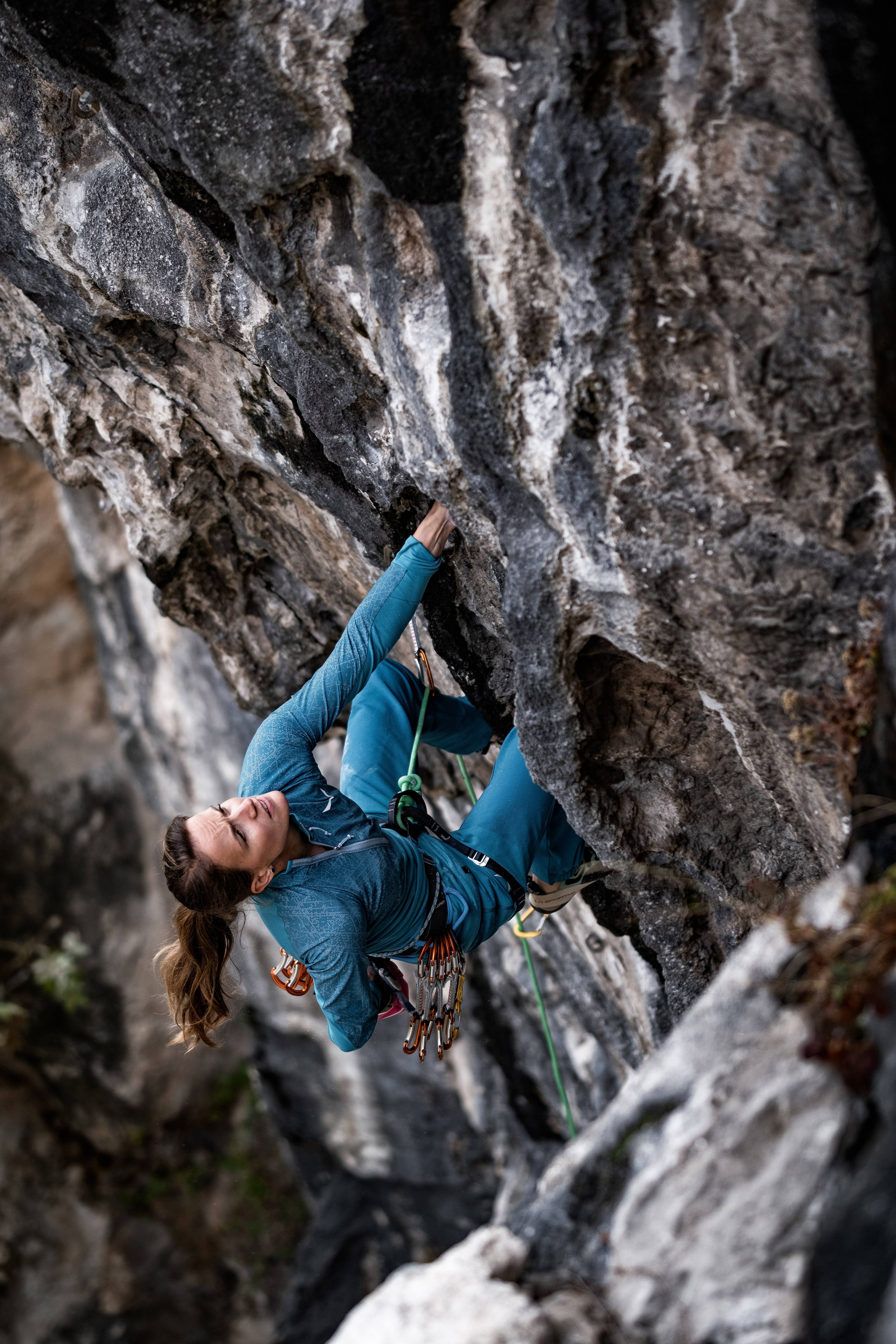
“The first thing was not to give up. If you have a dream, you have to work hard to achieve it. Also, I learned how to train, how to prepare for the various kinds of problems on the wall.”
The big difficulty of Ali Baba was the fear, is this part closed or maybe he will come back in the next projects?
“Probably from next time it will be less, but certainly not gone. I will work on it for sure, but the good thing now is that I have the confidence and I know that I can work on it and that it is solvable and that it will improve. This time fear was an essential part, but the difficulty of the project was another fundamental part. I had to train hard for this project, so in the end there were two real issues to deal with: the fear and the difficulty of the route.”
In the movie you say you can work on your fear, but actually in a practical way, how did you work on your fear?
“Practically trying and making mistakes, climbing a lot and falling a lot and getting used to it. In sport climbing fear is a very personal matter, even if it is irrational because maybe you are really close to the end. The important thing in those moments is to let go and start trusting those who maybe are safe.”
Isn’t it annoying to do something new like Ali Baba and have filmers or photographers around you?
“It’s certainly distracting, that’s why we decided to have a filmer at the beginning and then we made two trips in September to be alone and concentrate on the passages and the climbing itself. While the film was made in November. The trips in September were really fundamental to overcome my fears and understand what to do”.
What advice would 31-year-old Anna give to 16-year-old Anna?
“Be bolder, try different things and don’t worry about the future because everything will work out somehow.”
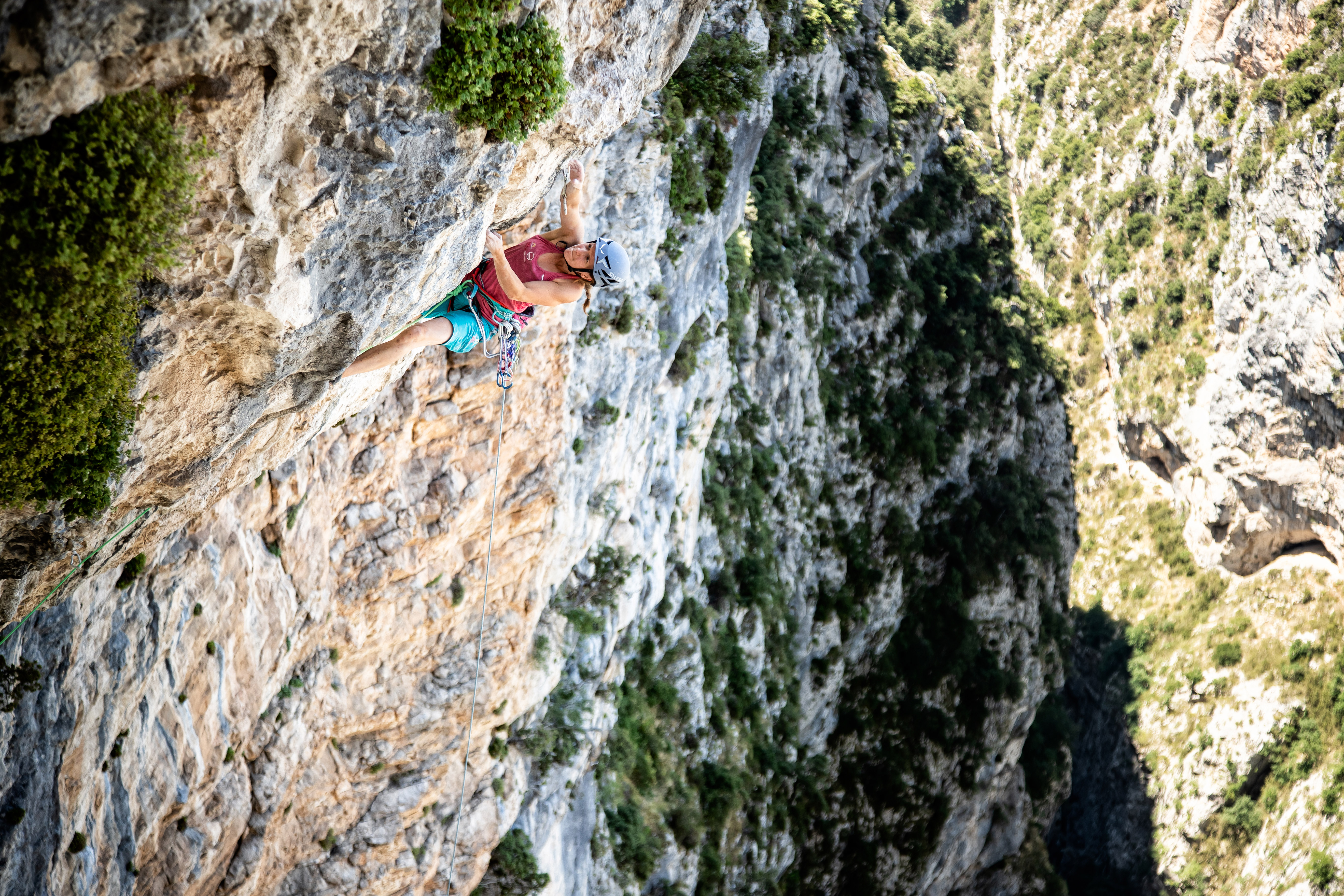
Share this Feature